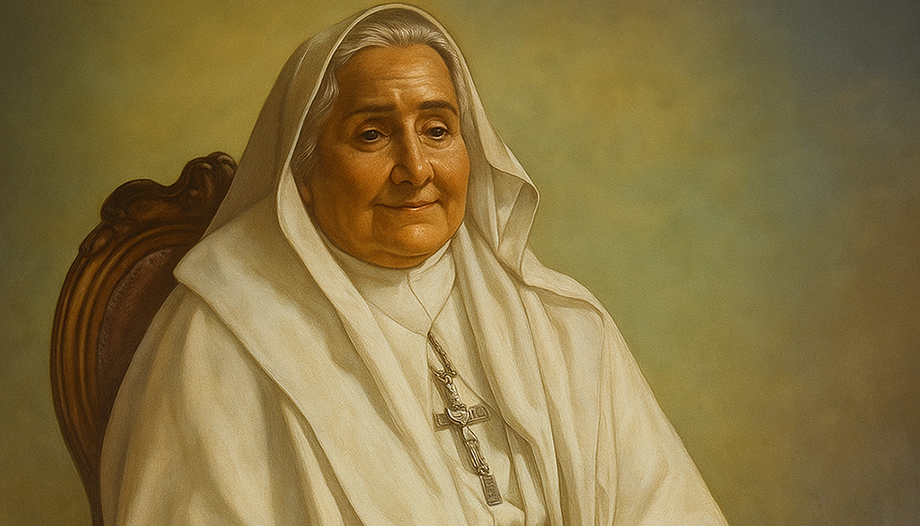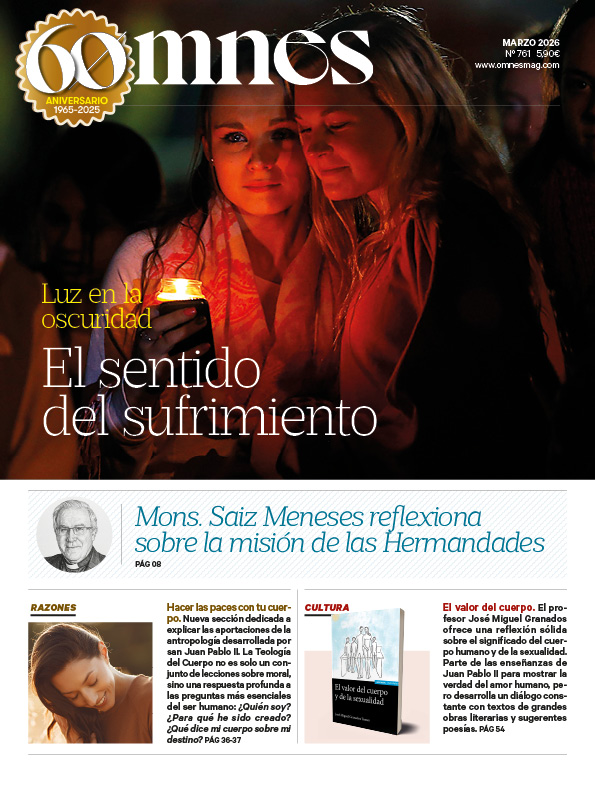A woman from Tucumán named Mercedes del Carmen Pacheco (1867-1943), in her youth, listens to the considerations and explanations of the encyclicals of Pope Leo XIII (1810-1903) in the temples, where the grave dangers of those times are warned. The words of the Pontiff are forceful: "Fidelity to God, unity of the Church and defense of the rights of workers, especially workers.". Full of courage and fervor, moved by the words of Leo XIII, Mercedes Pacheco became a fervent disciple and executor of the papal message in the very heart of the province of Tucumán, located in the north of Argentina.
When he was only 19 years old, he presented himself to the ecclesiastical authorities to offer his services, which over the years materialized in the foundation of the Christian Teaching Association (1890), which would operate in the cathedral of Tucumán with missionary and humanitarian tasks.
The influence of Leo XIII
On May 15, 1891, Pope Leo XIII, attentive to the social changes of the time, surprises the world with his encyclical Rerum Novarumin which he addresses the dire living conditions of many of the working class. It was the first social letter of the Church and from then on Leo XIII became known as "the worker Pope". Mother Mercedes' work on behalf of neglected children, from that moment until the end of her life, was tireless. She never allowed the children of the asylum she founded to be the servants of any greedy lord or lady.
In creating the Institute of Arts and Crafts of the Holy Family in 1895, the words of the Rerum Novarum were his inspiration and his north: "It is urgent to provide in a timely manner for the good of the people of humble condition, since the majority of them are struggling indecorously in a miserable and calamitous situation". (n. 1). From its foundation to the present day, the Institute's aim has been to promote the dignity of persons through study and work. The echoes of the common good, of justice and social equity, recovered by the new Pope Leo XIV, successor of our beloved Francis, have a very valuable reference in this simple and humble woman from Tucumán, to whom Dr. Juan Benjamín Terán, one of the founders of the National University of Tucumán, referred to as "a saint".
Mercedes Pacheco's recurring preaching was "...".do good quietly". This is perhaps the great challenge to which love for Christ leads, and it leaves us with a very precise message in this 21st century fed by immediate publicity on social networks, the search for approval and vainglory, and the interest in occupying the first places in the media forums of a narcissistic civilization. Mercedes traveled the roads of her homeland with a rosary in her hands and a conviction in her soul: the Kingdom of God should be a path of silent dedication to helpless children.
A cholera epidemic
At the end of the 19th century and beginning of the 20th century, a cholera epidemic, which took the lives of a third of the population of that region of Argentina, had left many orphaned children, adding to the high number of illegitimate children. The chronicles refer to "childhood in distress".It seems that the wealthy families refused to receive orphaned children who might be carriers of the disease. While the social scene abounded in these orphanages, the courageous and tenacious activity of Mother Mercedes succeeded in creating, starting in 1895, the first asylum for homeless boys and girls in the province, schools at all levels (including tertiary level), catechesis for workers, spiritual attention and care of the sick, arts and crafts workshops, welfare and educational establishments, nursery schools, maternal canteens, professional and handicraft schools, apostolate among the indigenous people.
All its activity was always crowned by gratuity and preference for the weakest members of society. It began in Argentina and opened up to the neighboring countries of Paraguay and Uruguay. The Congregation of the Missionary Catechist Sisters of Christ the King, founded by Mother Mercedes Pacheco, was approved in July 1987 by St. John Paul II.
Road to the altars
Mother Mercedes emerges as a historical response to the pain of her people; she designed and put into practice her sense of justice and law, an eagerness to echo the evangelical beatitudes, shaking social tangles of idleness, implementing a project of rescue and vindication of the inhabitants of the existential peripheries on the margins of the societies of comfort and abundance. As the encyclical would so aptly put it Fratelli Tutti (2020): "So, I no longer say that I have 'neighbors' whom I must help, but that I feel called to become a neighbor to others." (n. 81).
Far from the petty individualism, from the consumerist accumulation of a closed and indifferent world, her figure shines and her actions question today's society that continues to forget those for whom Mercedes fought all her life until the end. She was able to see God in others, as beautifully expressed in the verse of Jorge Luis Borges in the Another poem of the gifts: "Through love, which allows us to see others as divinity sees them".
On November 24, 2000, Mercedes del Carmen Pacheco was declared Servant of God by Pope John Paul II. During the following decade, the study of several miracles attributed to her began, with a view to her beatification. The motto "to do good without making noise" defines the dedicated life of Mother Mercedes to those most in need. It could also be a good motto for the life of each one of us, because very often in this modern world of ours, appearance and noise are considered more important than vital reality and effective service to others.








